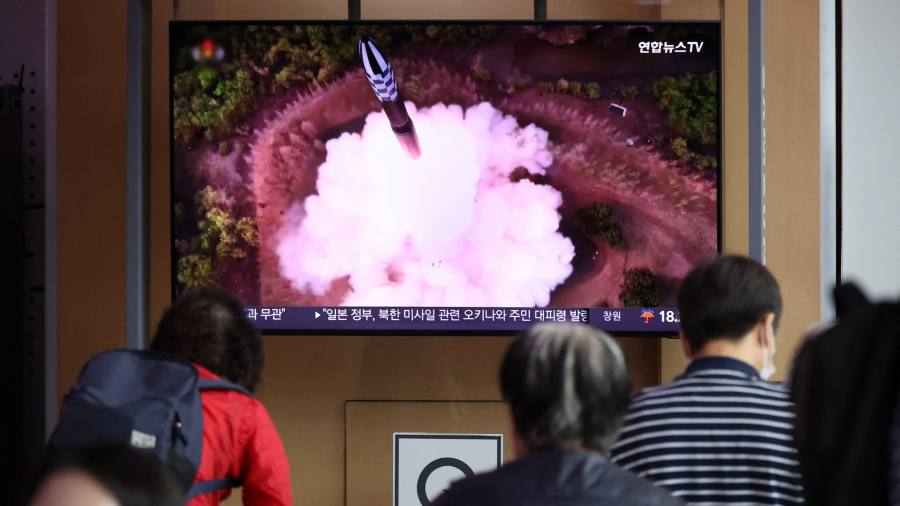
A failed North Korean attempt to launch a reconnaissance satellite into space triggered air raid sirens and an aborted evacuation order in the South Korean capital on Wednesday morning.
Residents of Seoul received a government “wartime alert” on their phones telling them to prepare to evacuate the city.
“A warning was issued in Seoul at 06.32 today,” read the message from the Seoul Metropolitan Government. “Citizens should be prepared to evacuate and allow children and the elderly to evacuate first.”
The message was quickly followed by an actual evacuation order. But the order was retracted about 10 minutes later after South Korean authorities admitted it was a “false alarm”.
Japan also issued a missile alert for the southern island of Okinawa that was quickly withdrawn after the projectile did not fall within Japanese territory.
The alerts were triggered by a rocket fired from North Korea’s Sohae Satellite Launching Station in the western province of North Pyongan. Pyongyang had signalled this week that it was preparing to launch its first spy satellite into space.
North Korea’s notification of its plans to the International Maritime Organisation prompted Tokyo to warn on Monday that it would shoot down any projectile posing a risk to its territory.
The rocket was fired westwards on Wednesday morning towards the Yellow Sea separating the Korean peninsula from mainland China. According to South Korea’s joint chiefs of staff, it landed about 200km from South Korea’s Eocheong Island in the Yellow Sea.
North Korean state media soon acknowledged that the launch had failed. According to Pyongyang’s Korean Central News Agency, the rocket “crashed into the west sea after abnormal ignition of the second-stage engine”.
The KCNA report added that scientists were investigating the “severe flaws” that resulted in the failure and that the country’s space agency would “conduct various tests in order to carry out a second launch within the shortest period possible”.
The South Korean military said on Wednesday it was conducting a salvage operation to recover parts of the space launch vehicle.
Yasukazu Hamada, Japan’s defence minister, told reporters that Tokyo would keep its ballistic missile defences on alert, given Pyongyang had said it could launch a satellite at any time between May 31 and June 11.
“We will carefully analyse the cause for the missile’s disappearance. We will respond firmly since North Korea’s notification period is still ongoing,” Hamada said.
The White House condemned the North Korean launch, saying the move raised tensions and risked destabilising security in the region, according to National Security Council spokesperson Adam Hodge.
“The door has not closed on diplomacy but Pyongyang must immediately cease its provocative actions and instead choose engagement,” he added.
Experts said Wednesday’s terminated evacuation order raised questions about the South Korean government’s early warning system.
“During a real attack, warnings and alerts can save lives by prompting people to take shelter,” said Ankit Panda, a nuclear weapons expert at the Carnegie Endowment for International Peace in Washington. “But false alarms erode public trust and can be actively destabilising in a crisis.”
Additional reporting by Kang Buseong in Seoul and Demetri Sevastopulo in Tokyo